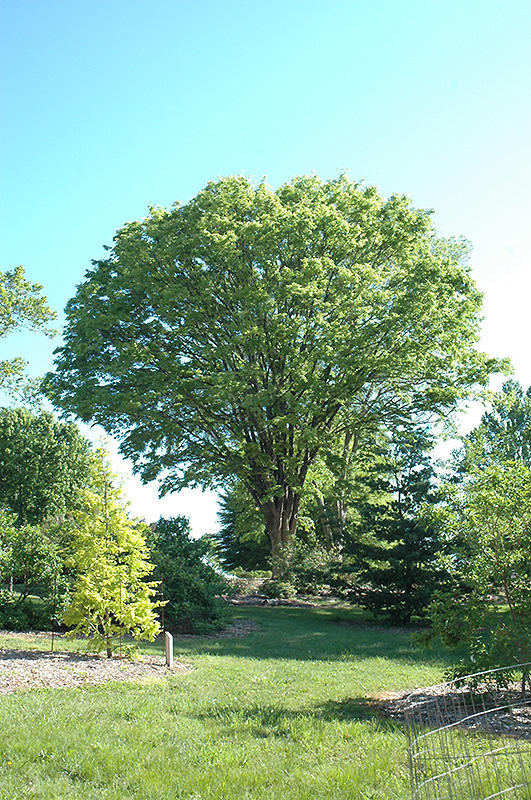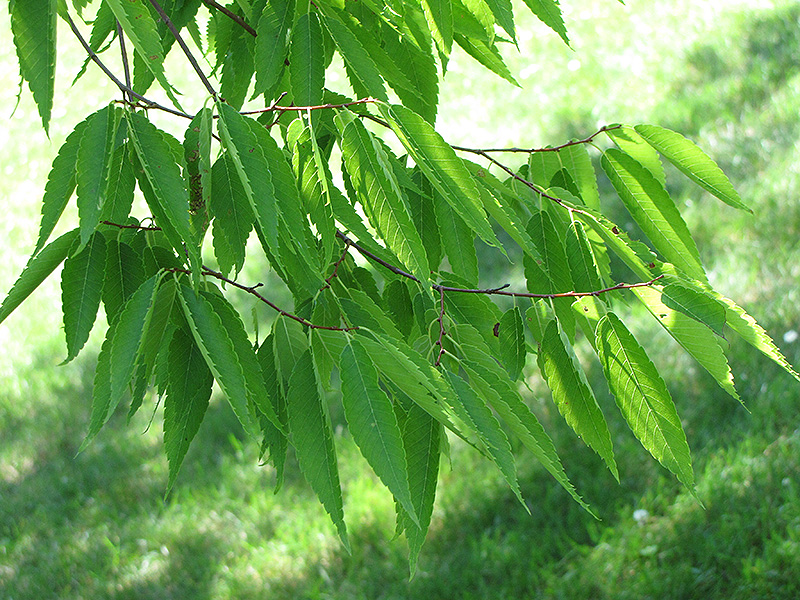>> Home
Height: 70 feet
Spread: 50 feet
Sunlight:
![]()
Hardiness Zone: 5
Description:
A close relative of the elm, a tall and beautiful shade tree with a vase-shaped habit, interesting peeling bark and good fall color; low maintenance and trouble-free, an excellent choice for street plantings or larger landscapes
Ornamental Features
Japanese Zelkova has forest green deciduous foliage on a tree with an upright spreading habit of growth. The serrated pointy leaves turn an outstanding orange in the fall.
Landscape Attributes
Japanese Zelkova is a deciduous tree with an upright spreading habit of growth. Its relatively fine texture sets it apart from other landscape plants with less refined foliage.
This is a relatively low maintenance tree, and is best pruned in late winter once the threat of extreme cold has passed. It has no significant negative characteristics.
Japanese Zelkova is recommended for the following landscape applications;
- Shade
Planting & Growing
Japanese Zelkova will grow to be about 70 feet tall at maturity, with a spread of 50 feet. It has a low canopy with a typical clearance of 5 feet from the ground, and should not be planted underneath power lines. It grows at a medium rate, and under ideal conditions can be expected to live for 70 years or more.
This tree should only be grown in full sunlight. It is very adaptable to both dry and moist locations, and should do just fine under average home landscape conditions. It may require supplemental watering during periods of drought or extended heat. It is not particular as to soil type or pH. It is somewhat tolerant of urban pollution. This species is not originally from North America.

